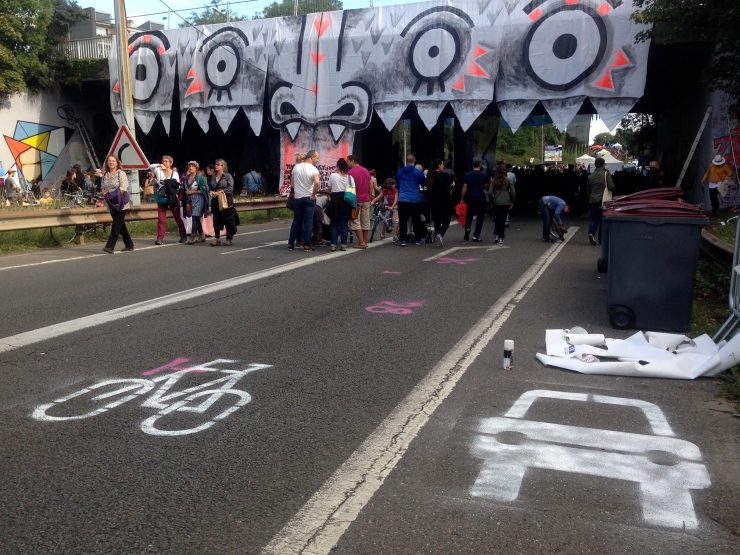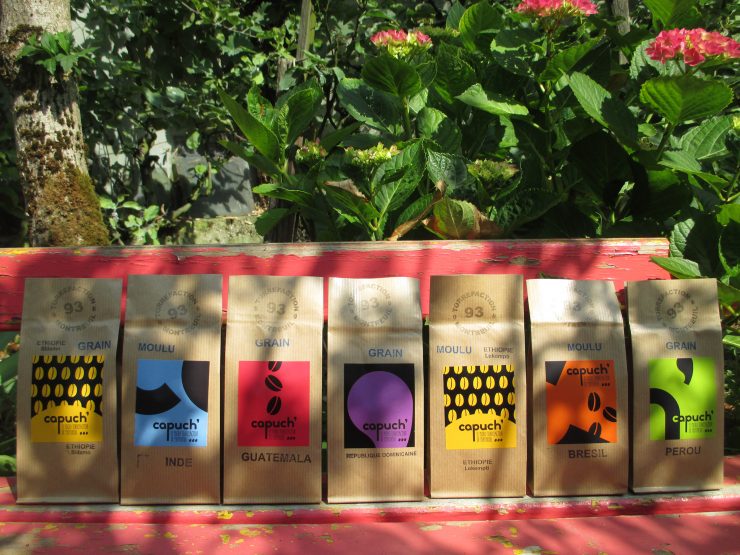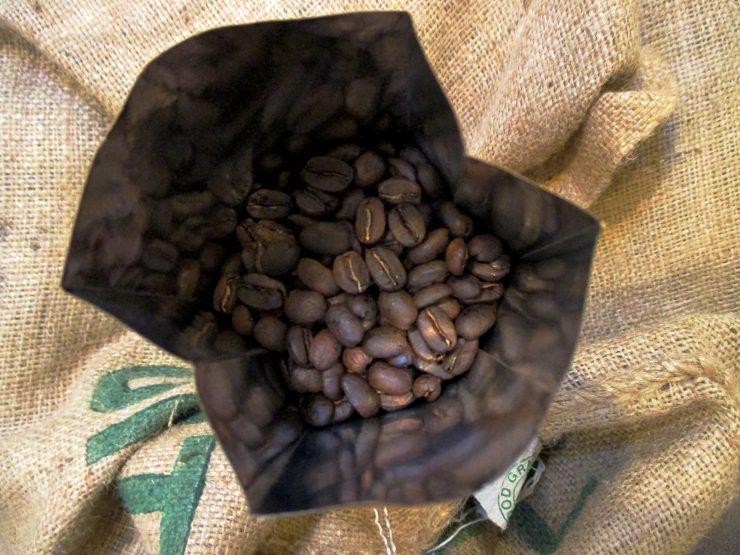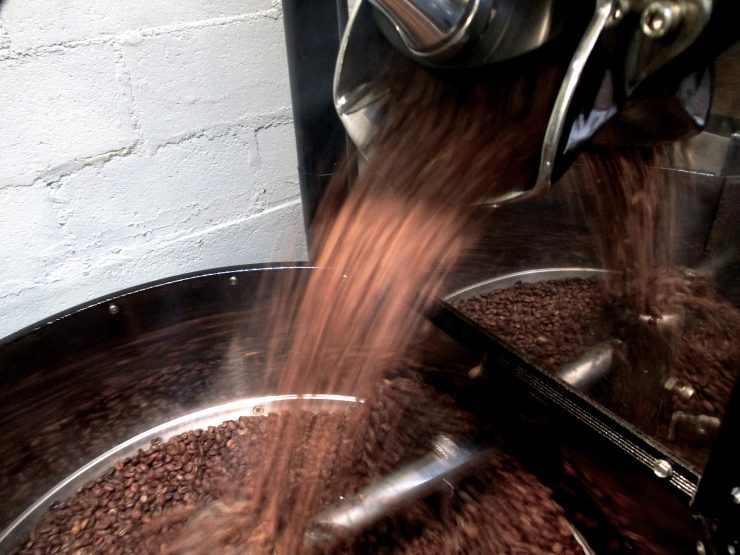
The Rue des Clos Français in the Parisian suburb of Montreuil looks like any other residential street in the area: a slab of five-story apartment buildings stretches along one sidewalk, a school and a smattering of squat, multicolored houses freckle the other. But there’s something different about number 12. Instead of the typical potpourri of urban odors, number 12 exhales the scent of coffee: behind the bright blue gate, at the end of a curved garden path, Marine Ploix and Julie Caron run Montreuil’s first and only microroaster, Capuch’, out of a shed the size of a living room.
“We’ve been friends for a long time. We wanted to start a project together and we quickly hit on the idea of making coffee,” explains Ploix as she fills and seals bags to sell at the next day’s farmers’ market. “We did a market study and found there were no roasters in Montreuil or the surrounding cities.” The pair launched a crowdfunding campaign in 2014 to buy a roaster and other basic equipment. Within a month, they had surpassed their €6,000 goal by more than a thousand euros. A lot of that money came from friends and members of the Montreuil community, the same people Ploix and Caron sell coffee to at the market every Saturday.

Ploix and Caron source their beans through Maison P. Jobin, based in Le Havre, in northern France. They don’t buy the highest-end coffee on the market, but instead focus on refining their technique on midrange beans that remain accessible to their customers. Ploix is frank about their philosophy on this point. “We don’t want to sell coffee that costs €15 a bag. We have a diverse customer base, and many simply can’t afford that,” she says. When asked if Capuch’ would ever cross the periph’ into Paris, Ploix responds without hesitation. “We want to focus on Montreuil and the eastern suburbs. We love our city and we don’t want to sell somewhere on the other side of the world.” The name Capuch’ is a nod to the funky, urban character of Montreuil that inspires both women: it’s a play on cappuccino, but also on capuche, the French word for hoodie, the uniform of the area’s suburban youth.
For the moment, the pair doesn’t need to look further than home to sell their selection of six coffees, each named for a neighborhood in Montreuil: most of the 30 to 40 kilograms Caron roasts weekly is quickly sold to regulars at the market. “We wanted to bring the tradition of buying beans at the market back,” explains Ploix.

Ploix and Caron also want Capuch’ to move to Montreuil’s beat. In addition to the market, they participate in many local festivals, often brewing a coffee to represent the occasion, like at September’s La Voie est Libre, when a one-kilometer section of the autoroute is sectioned off and community groups take over. They sell the rest of their coffee through several local businesses, including Les Tatas Flingueuses, a cafe/art boutique known for stocking the work of local artists and artisans. Interestingly, several bistros in the east have opted for Capuch’ over industrial coffee giants. “They’re mainly small, young cafes that don’t have a contract with [Cafés] Richard and don’t want one,” explains Ploix.
To meet the demands of a head roaster, Caron took an intensive three-day training course with Belco in Bordeaux and spent a week at La Caféothèque in Paris. The rest has simply been a matter of experience. “I learn by doing,” she says almost apologetically. She’s the first to describe her roasting technique as more intuitive than scientific. “We don’t have a computer; we work sensorially, like in the kitchen,” adds Ploix. Caron talks about coffee with many of the same colorful adjectives used to describe wine. It’s one way she connects with customers who might have never tasted specialty coffee before stumbling upon Capuch’ at the market or a festival.

As Capuch’ wraps up its first year, the question “what’s next?” naturally arises. For now, Ploix will keep her job as a part-time schoolteacher as she continues to run the business end of Capuch’. The next goal is to regularly sell enough coffee to pay Caron a full-time minimum-wage salary. “We’re at about a half-salary right now,” says Ploix, smiling. “We’re getting there, bit by bit.”
Capuch’ coffees are available whole bean or ground every Saturday at the Marché République in Montreuil. Follow them on Facebook.
Read more Kate Robinson on Sprudge.
The post Capuch: A Coffee Roaster In The Paris Suburbs appeared first on Sprudge.

